Cold Water Therapy For Menopause: Refresh And Restore
On
07/10/2024Reading time:
4 min
Summary:
Listen to your body and find what works best to make menopause a positive experience, supporting your healthy and happy life. Start this journey with confidence, because you deserve the best in life!
1. What is perimenopause?
Perimenopause is a natural transitional period for women before entering menopause. During this period, the ovaries gradually reduce the production of estrogen, leading to physical and psychological changes. Perimenopause is not a disease but a normal physiological process.
2. What is menopause?
Menopause is the stage that marks the end of a woman's menstrual cycle and fertility. When the ovaries stop functioning completely, estrogen levels drop sharply, causing many typical symptoms.
5 common symptoms during perimenopause and menopause:
Menstrual disorders:
· Irregular menstrual cycles, which can be prolonged or shortened.
· The amount of menstrual blood changes, which can be more or less than normal.
· Menorrhagia occurs.
Hot flashes:
· Sudden feeling of heat in the face, neck, chest spreading throughout the body, often accompanied by red skin, night sweats.
· Chills may appear immediately after the hot flashes.
Mood disorders:
· Feeling irritable, easily agitated, mood swings.
· Depression, anxiety, insomnia.
· Difficulty concentrating, memory loss.
Sexual health problems:
· Vaginal dryness, causing pain during intercourse.
· Decreased sexual desire.
Other health problems:
· Headache, fatigue.
· Weight gain, difficulty losing weight.
· Rapid heartbeat, anxiety.
· Osteoporosis, increased risk of fractures.
Note: Each woman will experience perimenopause and menopause with different manifestations. Some people may experience many symptoms, while others may experience fewer
3. The impact of menopause
Menopause is not only a physiological change but also affects mental and physical health. Menopausal symptoms can reduce the quality of life. Although this is a natural stage and you need to accept it, it does not mean that you have to endure those natural symptoms. Having good support methods can help you overcome those symptoms easily. One of the methods that is being used popularly recently is cold water therapy.
4. Cold water therapy: Inspiration from nature
Cold water has long been known to have many health benefits. Science has shown that exposure to cold water can improve blood circulation, reduce inflammation, and strengthen the immune system. During menopause, cold water therapy such as cold showers or cold water immersion can help relieve some uncomfortable symptoms.
Cold water therapy, or cold water immersion, is becoming an increasingly popular form of therapy. Historically, many different cultures have used cold water as a form of cryotherapy, a general term for therapies involving cold temperatures.
Today, physical therapists, chiropractors, personal trainers, and other health care professionals use cold water immersion and other forms of cold water therapy (such as contrast water therapy, which alternates exposure to hot and cold water) as a way to relieve pain and potentially speed up muscle recovery.
5.Some of the benefits of cold water therapy:
Refreshing feeling from cold water
When you step into cold water, your body feels a strong stimulation. This causes the body to produce endorphins, the "happy" hormones, which improve mood and reduce stress. Many women who suffer from anxiety during menopause may find relief through cold water therapy.
Enhance cardiovascular health
Menopause means estrogen levels decrease. This can increase the risk of heart disease. Cold water therapy can help improve heart health by stimulating blood circulation, supporting energy and alertness.
Sensitive to temperature
Although exposure to cold water can be beneficial, many women in menopause are more sensitive to temperature. Therefore, it is important to start slowly. You may want to start with warm water before gradually reducing the temperature to colder. This will help the body gradually adapt and enjoy the benefits of cold water therapy most effectively.
Combine with exercise
Cold water therapy can be more effective when combined with physical activity. Gentle exercises such as yoga or walking combined with cold water therapy will improve overall health and well-being. Exercise has the effect of releasing endorphins, which help reduce stress and improve mood.
The magic of nature is proven
Although cold water therapy is natural, many modern studies have proven its effectiveness in reducing menopausal symptoms. Research shows that women who use this therapy have reported relief from menopausal symptoms. The exchange of information between nature and modern medicine is opening up many new opportunities, new therapies that incorporate natural elements.
Notes
If you want to start experimenting with cold water therapy during menopause, keep in mind the following tips:
· Start slowly: Do not jump into cold water immediately. Take it one step at a time and listen to your body.
· Use natural cold water: If possible, use cold water from nature such as the ocean or a lake to experience the optimal benefits. Or you can soak in ice water at home but adjust the temperature to let your body adapt.
· Keep the bath short: Each cold water bath should only last 1 to 5 minutes, ensuring your body does not go into cold shock.
· Combine with breathing: Practice breathing techniques while taking a cold bath to reduce discomfort and relax more.
6.Take care of yourself during menopause
Finally, it is important for women to take care of themselves during menopause. Cold water therapy may be just one part of your overall health journey. Remember that everyone has a unique experience during this period, and finding what works for you is important.
In conclusion, menopause is a natural part of life, however, by applying cold water therapy, you can refresh and restore your health.
Source: Team MPS compiled, analyzed and wrote. Please dont reup without source. Many thanks.
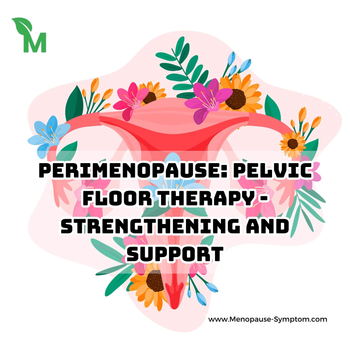
Perimenopause: Pelvic Floor Therapy - Strengthening and Support
09.02.2024
Perimenopause and Body Changes
Menopause is a natural stage in a woman's life, usually starting between the ages of 45-55, that marks the end of her menstrual cycle and fertility.
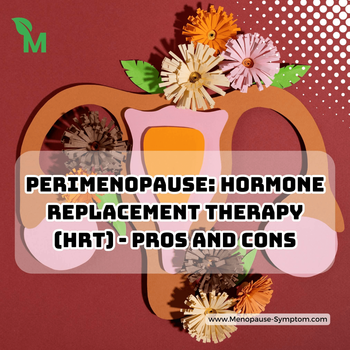
Perimenopause: Hormone Replacement Therapy (HRT) - Pros And Cons
09.02.2024
In every woman's life, perimenopause and menopause are inevitable. This is a period that marks physiological changes in the body, with many unpleasant symptoms such as hot flashes, insomnia, and mood swings.
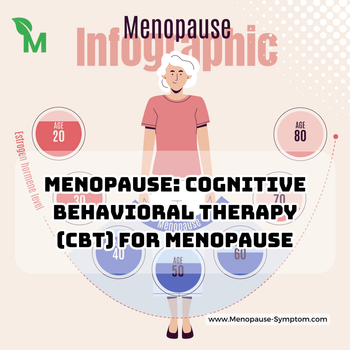
Menopause: Cognitive Behavioral Therapy (CBT) For Menopause
09.02.2024
Menopause is a natural stage in a woman's life, usually occurring between the ages of 45 and 55. This is a time when the body undergoes many hormonal changes, leading to unpleasant symptoms.
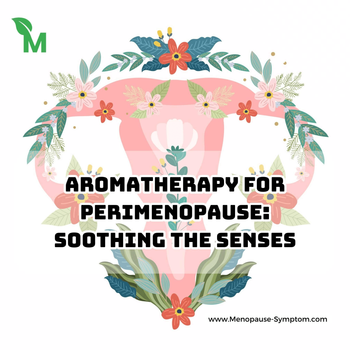
Aromatherapy For Perimenopause: Soothing The Senses
10.07.2024
Taking care of yourself, taking time to relax and enjoy peaceful moments will not only help you overcome perimenopause easily, but also bring you a life full of energy and happiness.
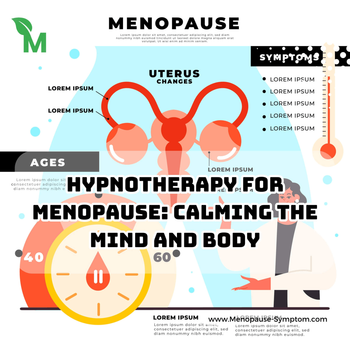
Hypnotherapy For Menopause: Calming The Mind And Body
10.07.2024
Everyone has the right to be happy, and through natural methods like hypnosis, you can achieve that during menopause. Experience and explore the positive things life can bring.
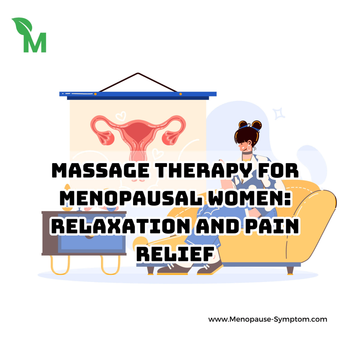
Massage Therapy For Menopausal Women: Relaxation And Pain Relief
10.07.2024
Pressure and stress in life are the cause of many health problems, especially in women in perimenopause.
